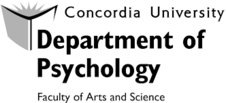

In our fast-paced world, where to-do lists seem never-ending, deadlines are tight, and nightlife is bustling, it can be challenging to prioritize our health and well-being. Even more so, the prevalent and highly regarded “go-go-go” lifestyle creates a constant state of urgency that makes prioritizing our health and well-being even more difficult. Unfortunately, the most important aspect of our well-being is often the one that gets neglected the most: sleep. People often boast about being sleep-deprived and pulling all-nighters, considering it a sign of hard work and dedication. They often tend to sacrifice their sleep to gain more working hours or compensate for leisure time they couldn’t enjoy during the day.
Now, I want to turn the “they” into “you”. Think of a time when you gave up your precious sleep to pull an all-nighter studying for a big exam, finishing work on a project, or going clubbing with your friends. Most of us probably choose to give up some of our sleep time because otherwise we feel like we’re missing out. The big question here is: what awesome benefits of sleep are we missing out on by staying up late to keep up with the crazy demands of the world?
My focus will be on the emotional and social benefits that make sleep, specifically the rapid eye movement (REM) stage of sleep, a form of overnight therapy. REM sleep is one of four stages of sleep that occur in a single sleep cycle. It is characterized by heightened brain signals that closely resemble those of the waking state and is accompanied by vivid dreams and random rapid eye movements. In fact, it is the vivid dreams that occur in this sleep stage that are the main component in emotional healing, which is often attributed to the passage of time [1]. For example, you can see how your dreams are related to emotional regulation when you compare their intensity and complexity to the intensity and complexity of the emotions you experienced the day before [2]. Our dreams often reflect our waking thoughts and experiences.
If we look at individuals suffering from posttraumatic stress disorder (PTSD), a mental health condition that can occur after an individual experiences a traumatic event, we notice that their REM sleep is often impaired [3]. Consequently, their brains are unable to remove the emotions they felt from their trauma memories as they sleep during the night. As a result, the brain repeatedly attempts to do so in following nights, resulting in recurring nightmares [3]. The more intense the emotion experienced during an event, the longer it takes for REM sleep to rid that memory of the emotion. Hence, you will have a more detailed memory of events that had a strong emotional impact on you than of ones that did not. This theory proposes that dreaming during REM sleep serves two crucial purposes: enhancing the retention of new experiences and integrating them with existing knowledge as well as reducing the emotional intensity associated with those memories. In sum, adequate nightly sleep is essential for REM sleep to facilitate emotional healing and regulation.
During REM sleep, dreaming not only aids in processing daily emotions but also enhances our ability to perceive and understand emotions from the facial expressions of individuals we interact with. Sleep is like a master tuner that maximizes the brain’s ability to decipher micro-expressions with as much accuracy as possible [1]. So, what happens when you don’t get enough sleep? You miss out on the benefits of this master tuner. This may in turn lead you to misinterpret the verbal and non-verbal cues of those around you and perceive them as being more hostile than they really are. Not to mention that having a hostile perception of people can become problematic and potentially influence the quality of your social relationships.
As a matter of fact, studies have shown that insufficient sleep leads to disrupted socioemotional functioning resulting in interpersonal conflicts [4]. In a study about sleep loss and anger, the results showed that individuals who slept less experienced more reactive anger with higher intensity to certain events during the day (e.g., hearing a disturbing noise) [5]. Consequently, more negative emotions followed this experience making the individuals want to socially withdraw. In sum, sleep deprivation hinders proper emotional processing and control, potentially leading to relational problems.
In conclusion, the benefits of getting enough sleep far outweigh the costs of missing out on social events or working a few extra hours. Sleep is free and easy to access for most of us, and it can help us feel better emotionally, mentally, and physically. So, what’s your next step? Prioritize your sleep and reap the benefits of overnight therapy!
PS: If you haven’t figured it out yet, the answer is sleeping.
References
- Walker, M. P. (2017). Why we sleep: Unlocking the power of sleep and dreams (First Scribner hardcover edition). Scribner, an imprint of Simon & Schuster, Inc.
- Hooper, R. (2018). Dreams act as overnight therapy. New Scientist, 239(3187), 4.
- Pace-Schott, E. F., Seo, J., & Bottary, R. (2023). The influence of sleep on fear extinction in trauma-related disorders. Neurobiology of Stress, 22, 100500.
- Ben Simon, E., Vallat, R., Barnes, C. M., & Walker, M. P. (2020). Sleep loss and the socio- emotional brain. Trends in Cognitive Sciences, 24(6), 435–450.
- Krizan, Z., & Hisler, G. (2019). Sleepy anger: Restricted sleep amplifies angry feelings. Journal of Experimental Psychology: General, 148(7), 1239–1250.
About the Author








Share this post
Twitter
Facebook
Email